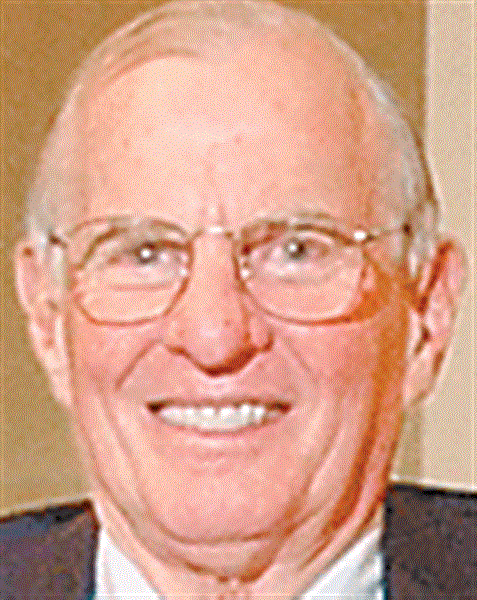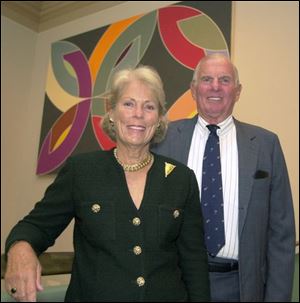
Local executive draws IRS scrutiny for tax shelter; Toledo, Dallas law firms are quizzed
3/15/2005
Welles
In 1967, David K. Welles, Sr., proudly showed a visitor a printing press his small firm purchased for manufacturing faux wood paneling that Americans in droves were slapping on walls in their homes and offices.
But it was wood-look front doors, made of fiber glass, that would form the basis of Mr. Welles' empire - one of Toledo's richest industrial empires in recent times.
By the time his Maumee firm, Therma-Tru Corp., was sold two years ago, it fetched $925 million.
But now, the sale of the business in two transactions in 2000 and 2003 and steps taken by Mr. Welles and his children to reduce their federal tax liability are being scrutinized by the Internal Revenue Service as part of a large investigation into questionable tax shelters.
A Dallas law firm that advised the Welles family about the shelter has been ordered to turn over its records and those of 600 other wealthy clients as part of the investigation so the agency can determine whether they made proper tax payments and to determine if the law firm complied with laws on tax shelter reporting.
Additionally, that firm, Jenkens & Gilchrist PC, which is among the nation's largest law firms, has agreed to pay $82 million to settle a separate lawsuit filed by clients who claim they were given bad advice about setting up shelters, lawyers announced in January.
David Deary, lead attorney in the suit against Jenkens & Gilchrist, said at the time of the agreement that the Dallas firm, along with accountants, investment firms, and other lawyers worked together to design and sell "bogus" shelters to trusting clients.
There is no indication that people who purchased the tax shelters are being investigated criminally, but lawyers say people audited by the IRS have been assessed back taxes, substantial interest, and 10 percent penalties.

Georgia and David Welles are shown at the Toledo Museum of Art, where they have been major donors.
Tax shelters cost the U.S. treasury between $10 billion and $18 billion annually in lost revenue, according to various estimates, and they have received increased scrutiny from the IRS.
The IRS, in court papers filed as part of its successful effort to obtain client names and records from Jenkens & Gilchrist's Chicago office, alleges that certain lawyers there acted as promoters hawking prepackaged - and potentially improper - shelters that federal agents have given colorful names like "Boss" and "Son of Boss."
A spokesman for the Dallas law firm, in a telephone interview, insisted its role was limited to preparing legal opinions on shelters designed by accounting firms.
It is no longer involved in such work, the spokesman said.
But court papers filed by the IRS state the Jenkens firm took a much broader role, claiming that lawyers there marketed the prepackaged shelters through accounting firms and lawyers including Shumaker Loop & Kendrick LP, Toledo's largest law firm.
The Toledo law firm has 150 attorneys, many wealthy clients, and branches in Tampa, Charlotte, and Columbus.
Shumaker Loop is described as a "co-promoter" of the shelters by the IRS in court papers the agency filed in federal court in Chicago in a proceeding in which the Welleses are seeking to shield portions of their files at Jenkens & Gilchrist.
In a telephone interview, Stephen Rothschild, a Shumaker Loop lawyer who now represents the Welles family members, but didn't help them set up the tax shelter, rejected the IRS's characterization of the Toledo firm as a "co-promoter."
The IRS has asked Shumaker Loop "to provide certain information regarding our relationship with Jenkens," Mr. Rothschild said. The Toledo firm, he said, is not the subject of a criminal investigation.
"We're cooperating to the extent that we can," the attorney said.
The IRS has no comment on the situation, said Kerry Hannigan, an agency spokesman in Chicago.
The Toledo and Dallas law firms were paid well for helping the Welleses with the tax shelter, court filings by the IRS indicate.
Under the payment arrangement, Jenkens was to receive 2 percent of the amount sheltered by the Welles family, or $4.4 million, and Shumaker Loop was to receive 1 percent, or about $2.2 million, the IRS said.
The IRS said that it has learned, after reviewing the files of other clients obtained from the Dallas firm, that Shumaker Loop sometimes billed the Dallas law firm under the name Foreign Sales Advisory Inc.
In an e-mail Oct. 20, 1999, John Ivsan, a former Shumaker Loop lawyer, stipulated that Foreign Sales Advisory was to be paid 1 to 2 percent as an "advisory fee," according to a sworn statement Oct. 12 in Chicago federal court by IRS revenue agent James M. Johnson.
"I would appreciate complete confidentiality concerning this matter," Mr. Ivsan wrote, according to the court filing. "I will put together a schedule for you outlining the transactions to date, approximate dollar amount, and fee allocations. Also, I am still obtaining commitments from some of these clients and I will forward complete information to you as these clients reach their decisions."
Mr. Rothschild, of Shumaker Loop, said Foreign Sales Advisory was incorporated by Mr. Ivsan and another lawyer - both of whom later voluntarily left the firm - but that it had no connection to Toledo law business. He was unable to provide further explanation.
Incorporation papers for Foreign Sales Advisory list the same downtown Toledo address as Shumaker Loop, the IRS said.
Reached at his law office in Charlotte, Mr. Ivsan said IRS claims are inaccurate. He declined to elaborate, and would not comment further.
Mr. Deary, the attorney who sued the Jenkens firm, said he has been contacted by several Shumaker Loop clients who purchased tax shelters from Jenkens after learning about it through the Toledo firm.
Mr. Deary said he is studying their complaints.
Mr. Rothschild said Shumaker Loop has been contacted by Mr. Deary's firm on behalf of four disgruntled clients who bought tax shelters. Shumaker Loop does not know if the clients plan to sue.
Neither Mr. Welles nor his son, David "Deke" Welles, could be reached for comment.
Speaking on behalf of the family, Julie Simpson, who directs their New York philanthropic foundation, said: "There are many families involved in this IRS case.
"The IRS has raised questions. The family is working with the IRS to resolve any issues and problems that have come up."
She declined further comment.
Mr. Welles, Sr., and his wife, Georgia, are major donors to the Toledo Museum of Art.
The couple, their children, and grandchildren five years ago established a foundation to assist young people nationwide and named it for an island in Canada where they enjoy vacationing together.
The Cricket Island Foundation in New York, with $40 million in assets, awards grants annually to organizations that encourage young people to address societal problems such as education reform and pollution.
The tax shelter recommended to the family is known as the "digital options investment strategy" and is similar to another strategy, known as ''Son of Boss,'' that the IRS publicly disallowed in 2000, the agency said in court filings in the Chicago case.
The strategy is complicated but works by "artificially inflating the basis" - or original cost - of the family's Therma-Tru stock, the IRS alleges. Since gains are calculated by subtracting original cost from the sale price, the tax liability is reduced.
The family name first surfaced publicly in the IRS investigation in July when it began the effort to shield a portion of its file at the Jenkens firm.
Acting on a request from the IRS, Chicago federal Judge James Moran two months earlier had ordered enforcement of an agency summons, or subpoena, demanding the files of hundreds of clients who bought tax shelters between 1998 and 2003. In ordering the turnover, the judge rejected arguments that the files were covered by attorney-client privilege.
The judge has agreed to listen to arguments from the Welles family about why an exception should be made for 11 pages of nearly 8,200 pages in their file at the law firm.
Seeking to prevent the release of the document are Mr. Welles, his wife, as trustee of a family trust, and their children: David, Jeffrey, Peter, Christopher, and Virginia Welles Jordan.
The request is pending. The Welleses argue that release of the documents would violate attorney-client privilege.
They learned about the Jenkens firm, the family told the judge in pleadings in late 1999 and early 2000, when they asked Shumaker Loop, their longtime law firm, for advice on reducing tax liabilities on the proceeds of a pending sale of one-half of their interest in Therma-Tru Corp.
Less then four years later, the new owners and the Welles family would sell Therma-Tru for $925 million to publicly traded Fortune Brands Inc., whose other products include Jim Beam bourbon, Titleist golf equipment, Moen faucets, and Master Lock padlocks. The buyer said it was attracted to Therma-Tru because of its annual sales of $400 million and because it makes one of every four front doors installed nationally.
Therma-Tru employs 2,500 people at its local headquarters and eight plants in the United States, Great Britain, and Mexico.
It is unclear how much the Welles family members made from the two sales involving the company. A Shumaker Loop lawyer described the initial deal as a "$425 million" transaction, although documents filed by the IRS in the case suggest the family was seeking to reduce taxes on expected gains of about $200 million.
While tax shelters are extremely complicated, the test of their propriety is whether they will have an economic benefit for the user beyond reducing federal tax liability, said lawyer Lawrence Ross, a Washington investigator who specializes in financial fraud and who once worked as a lawyer for the congressional committee that oversees the IRS.
"If you're going into it without a clear understanding of how you're going to make profit outside of tax savings, you're at terrible risk," he said.
Contact Gary Pakulski at:
gpakulski@theblade.com
or 419-724-6082.